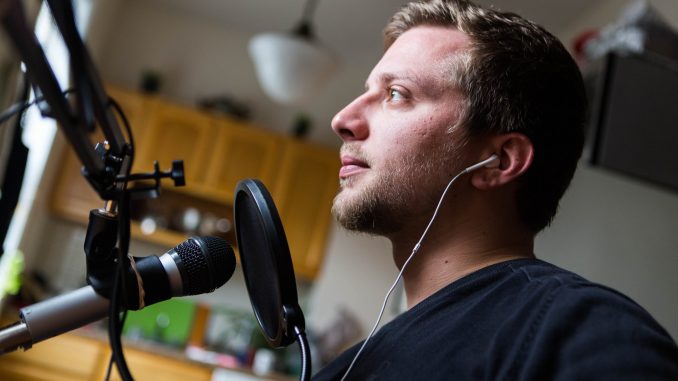
Once Kevin Frech graduated in 2015 and started making money, he would blow his paychecks every weekend on food, drinks and random items on Amazon, like clothes and video games.
Frech, a 2015 geography and urban studies alumnus, and Dan Miller, a 2014 sport and recreation management alumnus, had to learn how to manage their finances, like learning to save part of their incomes and how to pay back credit card bills. The duo — which met at Temple in the fraternity Alpha Kappa Lambda — realized other college graduates go through the same financial struggles they experienced.
In order to help out their peers, Frech and Miller created a podcast “If Money Could Talk,” which airs every Monday on Stitcher Radio — an on-demand radio service — and focuses on how young adults should manage their money. They debuted the podcast in September.
“We’re more just kind of teaching the basics of things,” Miller said. “I think that it’s actually a little shocking just how financially illiterate some of the adult population is that’s around our age.”
Since April 2016, the two have been making investments each month to improve their spending habits and patterns. Frech, Miller and three of their other friends, who are all Temple alumni, take out $100 each and combine it to make a $500 investment into different stocks.
The investment club, called “Frechworth United,” is a parody of the financial company J. G. Wentworth.
“That’s what led us to think, ‘Well, we’re sharing all this stuff together, we can share it with more people too,’” Frech said. “It does take a lot of work and everyone wants money, but finance is not the sexiest subject ever, and it’s not something that they teach in school at all unless you’re a finance major.”
About five months ago, Miller and Frech considered branching off from their investment club and starting a financial podcast.
Frech took an online course to learn how to set up a podcast on GarageBand through Lynda.com, an online video education resource. Once per week, they record the episode at the same time in their separate homes.
Miller works in New York, and Frech lives in Philadelphia, but each has a mic and GarageBand set up on their computers and connect with Google Hangouts.
Before each episode, Miller and Frech research their episode topic by watching documentaries and reading books like “Money: Master the Game,” a self-help book on how to secure financial freedom, and “Rich Dad Poor Dad,” which details the success story of an eighth-grade dropout who became a multimillionaire.
They research topics like credit cards, the Great Depression and the stock market, and tie them to finance. Their latest episode talked about Martin Shkreli, a former hedge fund manager who was convicted of fraud in August.
They’ve also started to incorporate guest speakers who work in the financial field into episodes, like Zach Wall, a 2014 city/urban, community and regional planning alumnus who spoke about cryptocurrency, like Bitcoin — a digital currency asset designed as a medium of anonymous monetary exchange.
Both Frech and Miller said they want the podcast to be relatable for young people, which is why they also base episodes off their own experiences.
“We try to make it so it’s like peer-to-peer,” Miller said. “We almost want to learn with our listener base. … We went through the same things you guys are and making the same choices you are in your life.”
Even though the main focus of the podcast is to educate young adults about how to manage their finances, Miller and Frech also want to keep their dialogue light and comedic. They often joke about the corruption on Wall Street.
“It’s kind of hard to listen to just a dry podcast unless you can kind of bring some life to it, and one of the more important things about the podcast is to try and be funny,” Miller said.
So far, they have an estimated 200 listeners per episode, and they plan to continue the show.
Frech and Miller have released nine episodes so far, and once they’ve reached the 10th episode, they plan to collaborate with other podcasts to build a network of podcasters.
Their ultimate goal is to monetize the podcast and eventually host it live.
“There’s so much better and smarter things you could do with your money to accumulate wealth, but unless you’re working directly in the finance industry, there’s just a lot of people that don’t have these financial literacy skills,” Miller said.


Be the first to comment